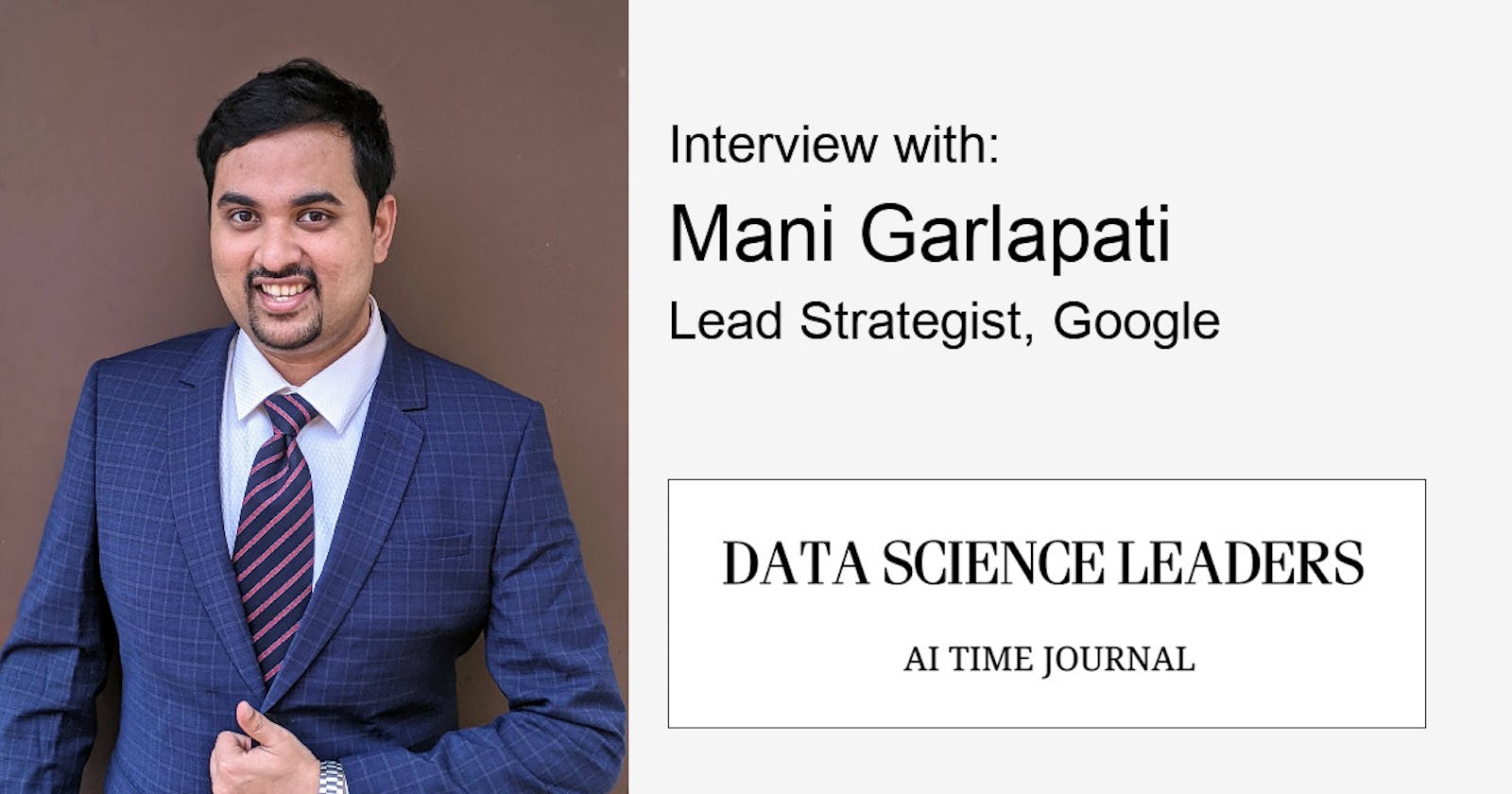How to Succeed in Your Data Science Journey – Hear From Mani Garlapati, Google
We thank Mani Garlapati from Google for taking part in the Data Science Leaders interview series and sharing his insights on succeeding in your data science journey.
Getting Started with Data Science
🎙️ Bala: At what point did you realize that you wanted to pursue a career in Data Science (Data & AI), and how did you get into it?
Mani: After graduation, I was wondering the which area would suit me the best. I did multiple internships across Web Designing, Android Development and Operations field. Later I got interested in Data Science and joined an analytics firm. I attended an open recruitment drive where over 500 candidates took part in the recruitment process. Three candidates were offered full-time opportunities on the same day, after several rounds of interview. I was one among them; that’s how I started my career in Data Analytics.
🎙️ Bala: According to you, what is the role of statistics in the present world of Big Data?
Mani: Statistical knowledge is of prime importance to succeed in analytics, whereas, in the industry, for most job profiles statistical knowledge is often not required. According to me, knowledge of sampling techniques and hypothesis testing were required when we did not have enough computing power to run the models on the entire data. With the advent of Big Data and Machine Learning techniques, being able to run at scale with superior accuracy would remove the dependency on statistical knowledge. Therefore, organizations tend to move towards technical skills in Big Data and Machine Learning over statistical knowledge.
🎙️ Bala: What advice would you give to other business leaders who hire for Data Science roles? What advice should they ignore?
Mani: I would suggest the following when looking to hire for open positions in Data Science.
During the hiring process, include coding rounds and provide case studies to be solved. This will help ensure that candidates with requisite practical knowledge in analytics get hired.
The hiring managers should certainly ignore advice such as hiring from top engineering universities. Organizations should leverage different crowd-sourcing platforms to publish their problems and for the hiring process as well. In this way, organizations would be able to identify and hire the best talents with the help of competitions posted on these crowd-sourcing platforms.
Essential Skills of Data Scientists
🎙️ Bala: What skills and attitudes do you look for when hiring data scientists?
Mani: The following are the requisite skills that I feel are important:
- Domain Knowledge
- Problem Solving
- Cognitive Ability
- Machine Learning Algorithms
- Business Intelligence
- Proficiency in a programming language, such as, R or Python
- Data handling skills and feature engineering are also extremely important with the advent of automated Exploratory Data Analysis (EDA) and Machine Learning. Therefore, Data Scientists with the required technical skills, who would help us build optimal models within a reasonable timeframe should be hired.
🎙️ Bala: In your opinion, what have been the most relevant breakthroughs in Data Science impacting our world in the past few years, and what trends do you see emerging going forward?
Mani: According to me, the evolution of BERT in the field of Natural Language Processing (NLP) is a great breakthrough. We can observe a consistent increase in NLP applications going forward. We consume and generate a lot of data in text format, across different social channels and repositories. Insights from these untapped sources can be of great importance to the organizations!
🎙️ Bala: What is one book that you would recommend as a good read to all aspiring data scientists?
Mani: Machine Learning with Python Cookbook: Practical Solutions from Preprocessing to Deep Learning is an amazing book that teaches requisite practical Data Science skills. Books teaching practical and industry-relevant problems, with the understanding of domain would help the data scientists to excel.
Importance of Data-Driven Decisions
Bala: What is your take on data-driven decisions vs decisions driven by intuition?
Mani: Data-driven decisions are significant, but they should be supplemented with domain knowledge to yield fruitful outcomes.
Data-driven decisions, when combined with the domain knowledge provide maximum throughput to the organization.
Decisions made by depending on intuitions could only be indicative but quantification would be a challenge. Leveraging Data Analytics would help quantify the objective and derive insights across the right attributes.
For example, an organization might want to open a new store in a particular region. Decision made intuitively or using only domain knowledge would probably help in identifying a specific area, but data-driven decisions, coupled with domain knowledge can give the exact coordinates for a new store that would probably maximize the benefits of the organization.

